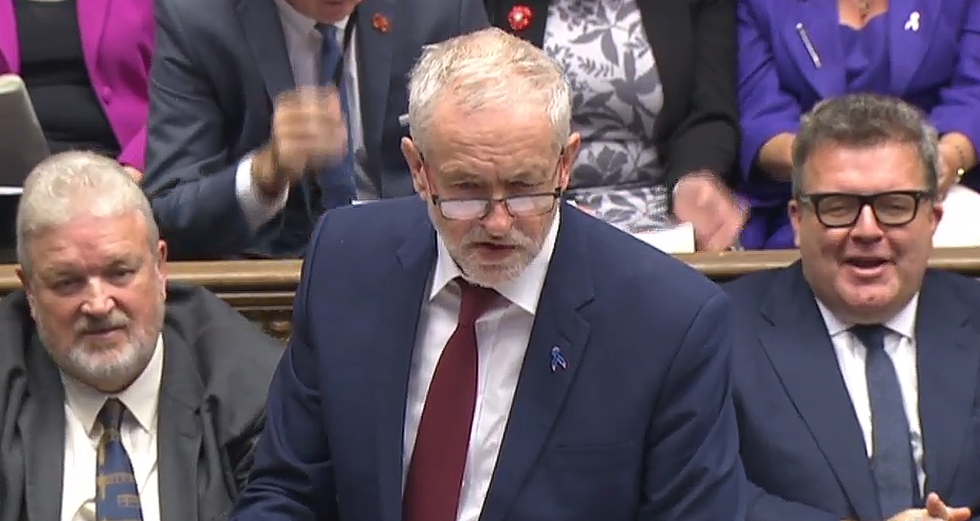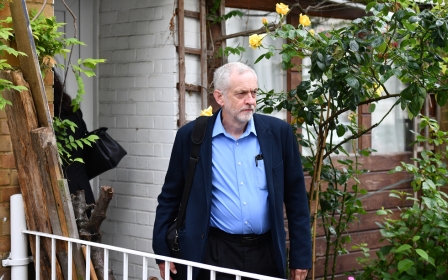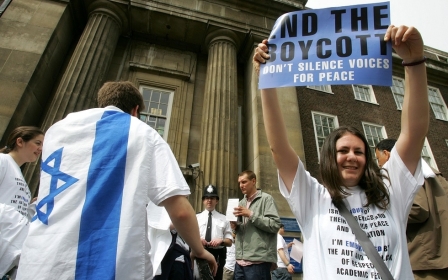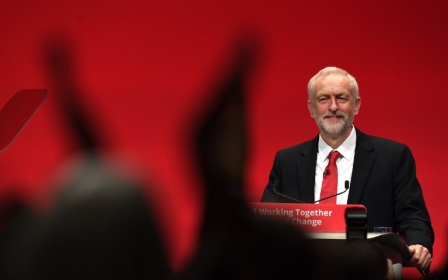Criticising Israeli policies 'not anti-Semitism': UK MPs' report

The definition of anti-Semitism should be clarified to ensure that criticising the Israeli government is not considered anti-Jewish, a British parliamentary report into anti-Semitism has recommended.
The report, published on Sunday by the Home Affairs Select Committee, also said it was acceptable to hold Israel to the "same standards as other liberal democracies" and for non-Israelis to criticise the Israeli government.
But it said that while Zionism remained a valid topic for academic and political debate, the use of the term had been tarnished "by its repeated use in anti-Semitic and aggressive contexts".
Noting an increase in recorded anti-Semitic hate crime, the report also said that the actions of the Israeli governent were no justification for abusing British Jews, just as the actions of the Saudi Arabian or Iranian governments did not justify anti-Muslim hate crime.
According to the Community Security Trust, an anti-Semitic hate crime monitoring organisation, the first half of 2016 saw an 11 percent increase in anti-Semitic incidents, the report said.
Police-recorded anti-Semitic hate crime rose by 29 percent in England and Wales between 2010 and 2015, compared with a nine percent increase across all categories.
While the UK was one of the least anti-Semitic countries in Europe, it noted that recent surveys suggested that as many as one in 20 adults in the UK could be characterised as “clearly anti-Semitic” and said there was a real risk that the UK was moving in the "wrong direction".
"The acts of governments abroad are no excuse for violence or abuse against people in the United Kingdom. We live in a democracy where people are free to criticise the British government and foreign governments.
"But the actions of the Israeli government provide no justification for abusing British Jews; just as the actions of the Saudi Arabian or Iranian governments provide no justification for abusing British Muslims," the report concluded.
Coverage of the report in the UK has focused on its criticism of the opposition Labour Party, which earlier this year conducted its own internal inquiry into anti-Semitism following the suspension of Naz Shah, a former member of the Home Affairs Select Committee, over social media posts including one in which she suggested that Israel should be moved to the US.
Corbyn hits back over report
But the committee said Labour's report had been undermined by its lack of recommendations and questions over its independence following the appointment of Shami Chakrabarti, who conducted the report, as a member of the shadow cabinet.
Labour leader Jeremy Corbyn was also singled out for criticism, which is made up of six members of the ruling Conservative Party, three Labour MPs and one Scottish Nationalist Party MP.
"Despite his proud record on fighting racism, the committee is not persuaded that Mr Corbyn fully appreciates the distinct nature of contemporary anti-Semitism, and the fact that it is perfectly possible for an 'anti-racist campaigner' to express antisemitic views," it said.
"His lack of consistent leadership on this issue has created what some have referred to as a 'safe space' for those with vile attitudes towards Jewish people, exacerbated by the party’s demonstrable incompetence at dealing with members accused of anti-Semitism."
Corbyn and his supporters hit back, saying the report had "a disproportionate emphasis on Labour”.
"Although the committee heard evidence that 75 percent of anti-Semitic incidents come from far-right sources, and the report states there is no reliable evidence to suggest anti-Semitism is greater in Labour than other parties, much of the report focuses on the Labour party,” he said.
“I’ve been in the Labour party for 50 years and until six months ago no Labour MP ever raised the issue of anti-Semitism. I was on Labour’s national executive committee under [former leaders] Neil Kinnock, Tony Blair, Ed Miliband, and in all that time there never came up to the committee any suggestion or complaints about anti-Semitic incidents.”
Acting committee chair Tim Loughton, an MP for the ruling Conservatives, called on the leaders of all parties to lead by example and to consider proposed reforms to their disciplinary procedures and training for members and activists.
"History shows that anti-Semitism is a virus that is too easily spread, through subtly pernicious discourse, ignorance and collusion," said Loughton.
"We call on all leaders of political parties to lead by example to tackle the growing prevalence of this insidious form of hate, opposing racism and religious hate in all its forms and working harder to promote inclusion and understanding among party members and the wider public, as befits the UK’s status as a multicultural, multi-ethnic, multi-religious society."
Middle East Eye propose une couverture et une analyse indépendantes et incomparables du Moyen-Orient, de l’Afrique du Nord et d’autres régions du monde. Pour en savoir plus sur la reprise de ce contenu et les frais qui s’appliquent, veuillez remplir ce formulaire [en anglais]. Pour en savoir plus sur MEE, cliquez ici [en anglais].




